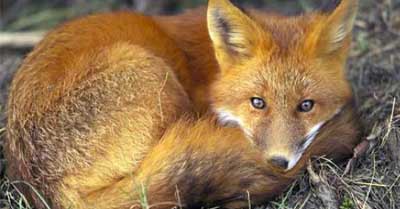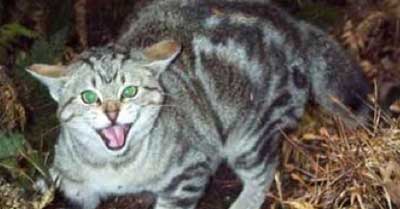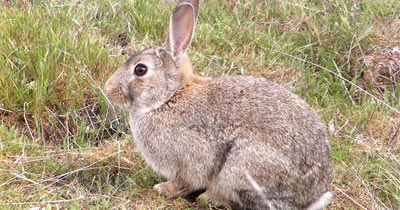The main species of feral animals present in the park are rabbits, feral cats and foxes.
 The European red fox (Vulpes vulpes) is a feral species that was introduced to Australia for recreational hunting in the mid-1800s. Foxes survive in many different habitats particularly in areas that offer a wide variety of shelter and food.The fox has played a major role in the rapid decline of Autralian mammals, birds and reptiles. In Western Australia foxes have contributed to the extinction of no less than ten species of native animal and significantly reduced the populations of numerous others. In the Geographe catchment foxes predate on our susceptible native animals such as the Southern brown bandicoot, quokka, western ringtail possum and brushtail possum.
The European red fox (Vulpes vulpes) is a feral species that was introduced to Australia for recreational hunting in the mid-1800s. Foxes survive in many different habitats particularly in areas that offer a wide variety of shelter and food.The fox has played a major role in the rapid decline of Autralian mammals, birds and reptiles. In Western Australia foxes have contributed to the extinction of no less than ten species of native animal and significantly reduced the populations of numerous others. In the Geographe catchment foxes predate on our susceptible native animals such as the Southern brown bandicoot, quokka, western ringtail possum and brushtail possum.

Feral cats (Felis catus) are very efficient hunters that threaten the survival of native ground dwelling birds, medium sized mammals, reptiles, amphibians, fish and insects. Feral cats can carry infectious diseases that can be transmitted to native animals. Domestic cats that roam and hunt can also predate on native fauna. Cats should be contained on their owners property at all times and kept indoors at night.

The European Rabbit (Oryctolagus cuniculus) arrived in Australia with the First Fleet in 1788. Rabbits reached Western Australia by the 1900’s and as the fastest spreading colonising mammal have a wide distribution. Rabbits have a significant impact on the environment by grazing on native plants and competing with native animals.
Image: http://agriculture.vic.gov.au
Management of feral animals in the Park
Baiting for feral animals helps to conserved the native flora and fauna in the park, which is a primary aim of the City and Meelup Park Management Committee.
An annual feral animal control program is conducted in the Park which comprises the following:
- Fox baiting using the naturally occurring poison ‘1080’ found in native plants called ‘poison peas’ (genus Gastrolobium). While our native animals have evolved with these plants and have a high tolerance to the poison, introduced animals do not.
- Rabbit baiting with 1080 and use of the Calici virus (rabbit Haemorrhagic Disease Virus) where required; and
- Feral cat trapping
The effectiveness of the above treatments are monitored using sand plots and infra-red cameras. Signs are erected around the Park to advise visitors about the existence of 1080 baits in the park and neighbouring landowners are notified prior to any baiting occuring.
All persons are warned that 1080 is poisonous and a danger to humans and domestic animals. Dogs are prohibited from Meelup Regional Park.
Landowners adjacent to Meelup Regional Park are encouraged to undertake fox control on their properties to increase the effectiveness of control. For residential areas fox traps are available for loan free of charge from the City of Busselton and Geocatch. A protocol has been developed on best trapping practices, which is available at City of Busselton website. In rural areas fox control advice can be sought from Department of Primary Industries and Regional Development (Ph: 9368 3333).
Images by: Animal Pest Management Services
